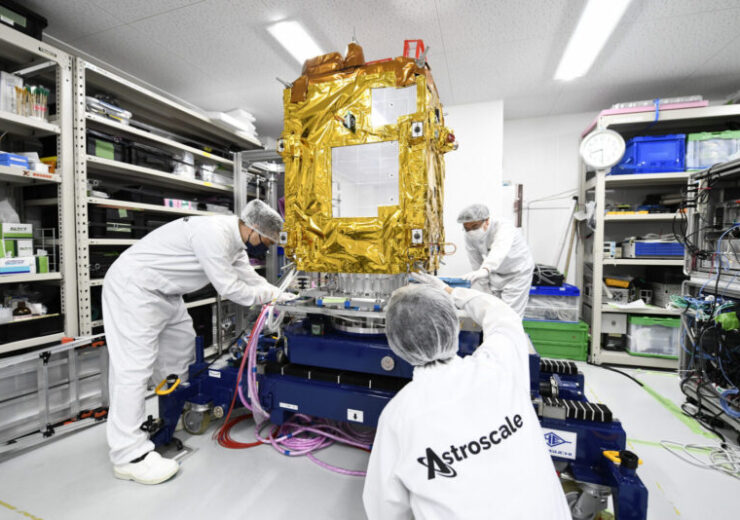Following the closing of the funding round, the on-orbit services technology provider has raised a total amount of $376m since its inception and the Series G funding is expected to bolster its technology development and expansion

Astroscale rakes in over $76m in a Series G round. (Credit: Astroscale)
Astroscale, a Japan-based on-orbit services technology provider, has announced the closing of a Series G round with over $76m from a group of new investors.
The financing round saw the participation of Mitsubishi Electric, Yusaku Maezawa, Mitsubishi, Mitsubishi UFJ Bank, Development Bank of Japan, and FEL.
Mitsubishi Electric has invested $25m in the funding round.
Following the closing of the funding round, Astroscale has raised a total amount of around $376m since its inception. In November 2021, Astroscale raised $109m in a Series F round which was led by THE FUND Limited Partnership in Japan.
The Series G funding is expected to bolster the on-orbit services technology provider’s technology development and company growth.
Astroscale founder and CEO Nobu Okada said: “We are pleased with the interest we received from our investors, which conveys a vote of confidence in Astroscale’s vision and potential.
“On-orbit servicing is a necessary infrastructure for a sustainable and growing space economy, and the key to reducing risk and increasing returns for satellite operators.
“We are on a mission to make on-orbit servicing routine by 2030, and these funds will significantly contribute to further innovative technology development, global expansion and increased capacity to meet the growing demand.”
Established in 2013, Astroscale develops solutions for on-orbit servicing. These include life extension, end-of-life, in situ space situational awareness, and active debris removal.
In a separate announcement, Mitsubishi Electric said that it will collaborate with Astroscale to jointly develop and manufacture sustainably designed satellite buses for Japanese national security constellations.
The satellite buses will feature the on-orbit services technology provider’s docking plate with a standardised interface. This is expected to enable other spacecraft to dock with and move or remove satellites once they are unable to deorbit themselves at the end of their operational lives.


